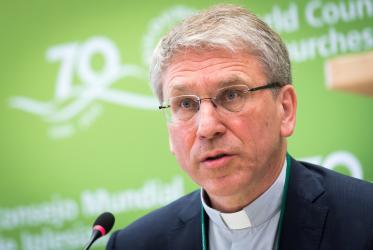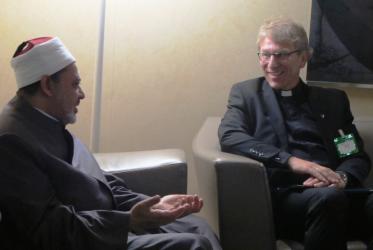Displaying 1 - 13 of 13
WCC condemns attack at Hanukkah celebration in New York City
29 December 2019
Paving the way for ecumenical studies, learning English in Bossey
24 September 2018
Tveit in DRC: “Making peace is holy work”
19 August 2018
"We have our work cut out for us"
10 August 2017
Nigerian breaks down stereotypes on Muslims
13 July 2017
In Lebanon, refugees face hardship - but find hope
16 March 2017
Dialogue flourishes between WCC, Muslim Council of Elders
30 September 2016
Fleeing from – rather than to – a place
10 February 2016






